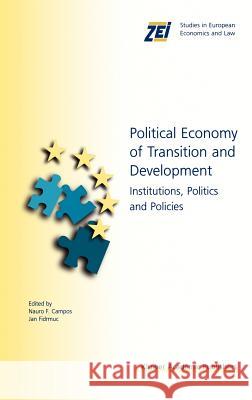Political Economy of Transition and Development: Institutions, Politics and Policies » książka
Political Economy of Transition and Development: Institutions, Politics and Policies
ISBN-13: 9781402075506 / Angielski / Twarda / 2003 / 279 str.
The economic and political transition in Central and Eastern Europe has now entered its second decade. Although the post-communist countries shared many similarities at the outset of the transition, their economic and political experiences have been strongly divergent. Some countries succeeded in stabilizing their economies and are now set on course toward rapid growth, convergence, and accession to the European Union. Others, however, experienced severe and protracted recessions and their prospects for sustained recovery are still doubtful. On the political front, the past decade was marked similarly by important achievements but also grave setbacks. While democracy became firmly embedded in a number of post-communist countries, other transition countries reverted to authoritarian rule and/or experienced breakdowns of law and order, inter-ethnic conflicts, or even outright civil wars.
Political Economy of Transition and Development collects the proceedings of an international conference that brought the leading thinkers in this field to the Center for European Integration Studies of the University of Bonn in May, 2002. The contributions analyze the various interactions between institutions, policy choices, economic developments, and political outcomes in transition and developing countries. The first five chapters give a relatively broad assessment of the various reform paths and outcomes in the transition and developing countries. The remaining eight chapters proceed to analyze important aspects of transition such as voting behavior, political-regime choice, corruption, social capital, growth and inequality, and EU enlargement. The resulting volume thus combines a bird's eye perspective with a relatively narrow focus on selected key issues pertaining to the ongoing transition process in Central and Eastern Europe.











